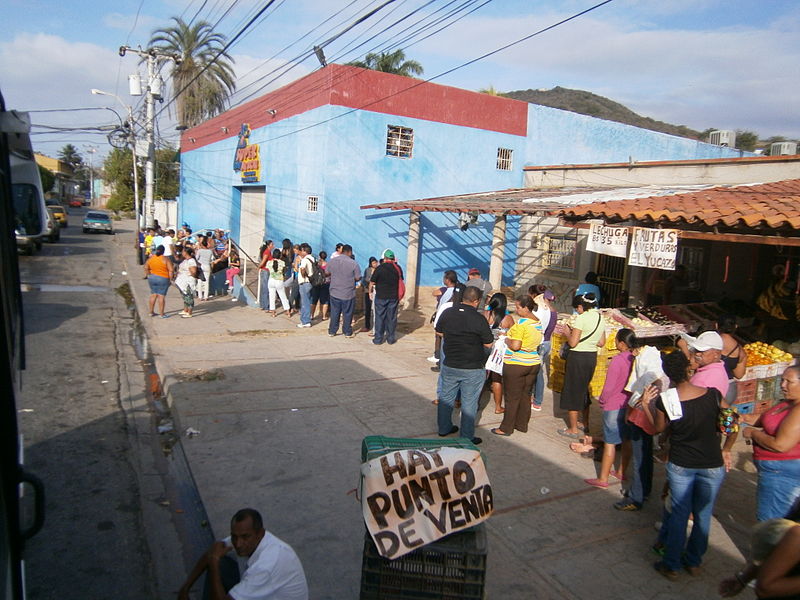It costs two million bolivars to buy a cup of coffee in Venezuela. The government's slashing five zeroes off the currency to try and bring things back to earth – but people aren't sure it'll work.
What it means: Prices in Venezuela have multiplied to a completely absurd level in the last few years.
The economy relies almost entirely on oil, but the government hasn't sold anywhere near enough, and sanctions from foreign countries haven't helped in terms of bringing in money – so instead, they've been printing new money to make ends meet.
That's led to a huge 'devaluation' in the currency: each bolivar is worth a lot less than it once was, because the government has printed so many of them. It's what economists call 'the wheelbarrow problem' – each unit of currency is so worthless, you need to bring a whole wheelbarrow of them to the shop to buy anything decent.
As of today, the government has brought in a new currency, called the 'sovereign bolivar', which slashes five zeroes off the last one (so that two million bolivar coffee is now just 20). They've also set a minimum wage 34 times above the previous.
It's all supposed to signal a new start of 'fiscal responsibility': but people are sceptical as to whether anything will change if this move isn't accompanied by some more structural changes in how Venezuela's economy is managed.
Read the full story: Sky News

